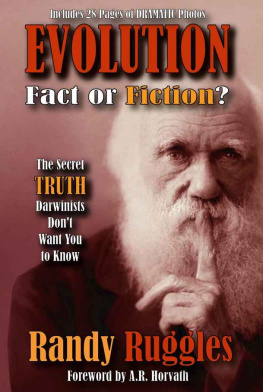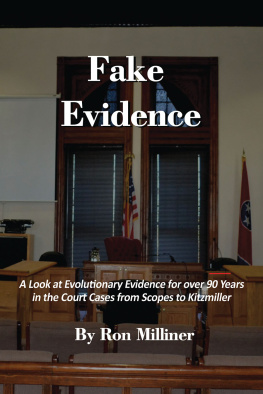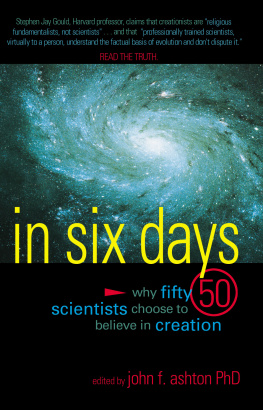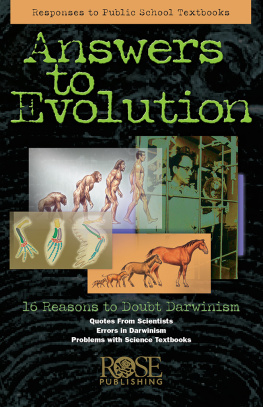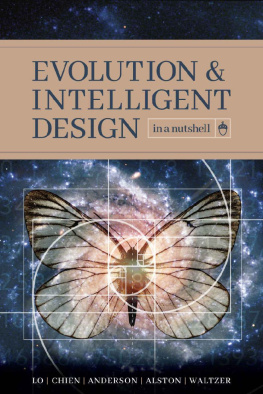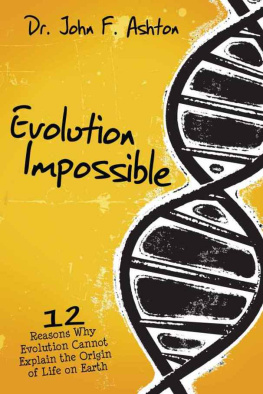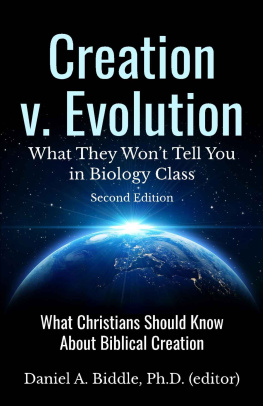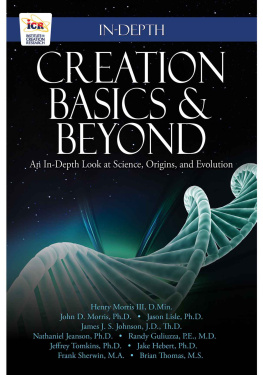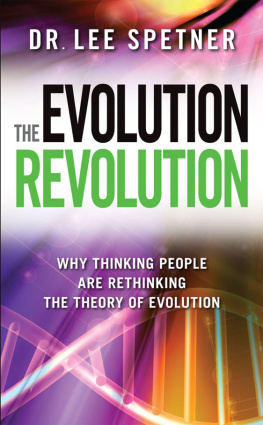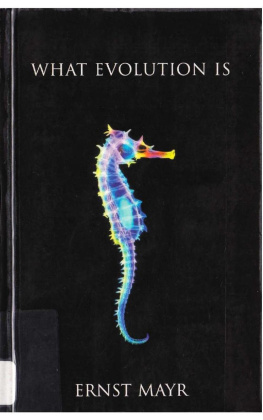
Evolution:
Fact or Fiction?

The Secret TRUTH Darwinists
Dont Want You to Know
Randy Ruggles
All rights reserved. No part of this book may be reproduced
or used in any form or by means, electronic, mechanical,
or otherwise, including but not limited to photocopy,
recording, or any information storage and retrieval system,
without prior written permission from the publisher.
ISBN: 978-0-9732087-2-6
Copyright 2009 by Randy Ruggles
PRINTED AND BOUND IN CANADA
This book is dedicated to my mother,
Shirley Ruggles ,
who taught me from an early age that,
(although I may have, at times, acted like one),
I was not descended from apes.
... the positive evidence for evolution is
very much weaker than most laymen imagine
and than scientists want us to imagine.
- Tom Bethell, Agnostic Evolutionists: The Taxonomic
Case Against Darwin, Harper's Magazine, 1985, p. 61
Table of Contents
Foreword 9
Introduction 11
. Evolution Defined
. On Darwin and His Theory
. On Dogma
. On Evolution and the Nature of Science
. On the Evidence
On Natural Selection
On Mutations
On the Fossil Record, Transitional Forms
and Missing Links
On Punctuated Equilibrium
On Ape Men
Dating Methods, Dinosaurs and the Age
of the Earth
On Animal Anomalies
On the Origin of Life
On the Big Bang Theory and the Origin
of the Universe
On Complexity, DNA and the Anthropic
Principle
On Creation and Intelligent Design
Separating Fact from Theory
Why Do So Many Accept Evolution?
Still Skeptical?
How to Proceed with Further Study
Conclusion 253
Appendix (Not Vestigial)
- Recommended Resources
- Modern Scientists Who Accept the Biblical
Account of Creation
- Scientists from the Past Who Believed in a Creator
Foreword
I grew up going to Christian schools. But it was while studying to become a pastor that I abandoned my faith. I eventually returned to it but not before learning a few hard lessons.
First, I learned that everyone has an opinion. If you hoped to get the best information by relying on scholars, youd soon find out that scholars often disagree with each other on pretty much everything you can imagine.
I realized early on that I had a responsibility to think for myself - and that meant training myself how to think. It also meant accessing the primary sources as much as possible so that I could make up my own mind. This approach has continued to serve me well as a defender and explainer of the Christian faith.
That is why I was really impressed by Randy Ruggles book Evolution: Fact or Fiction? Here you have a collection of primary sources. Scientists and scholars reveal, in their own words, a variety of quotations that seem to put evolutionary theory in a less-than- positive light.
As most of us are not in a position to investigate all of the scientific evidence ourselves, it might seem to make sense that we would have to rely on the scholars. But if the scholars cant agree, what shall we do then?
Yes, that is a problem. But consider the other side of the equation. Evolutionists would have us believe that when you do look at the evidence, youll find that evolution is profoundly supported. Further, they suggest that youd have to be stupid or evil not to recognize that. So, what they are really saying is You dont need to look at the evidence for yourself. Well do all your thinking for you. Got it? Thats where this book comes in handy.
By showing from scientists quotes that interpretations of the evidence vary dramatically, Ruggles hopes to generate reasonable doubt about the strength of evolution. I think he has done a fair job of doing just that, but at the very least he has planted the seed of doubt.
You might argue, But youd trust a brain surgeon to operate on your brain wouldnt you? They are experts. However, if disagreement among brain surgeons was anything approaching the disagreement we see among evolutionists, wouldnt you be wise to at least take some time to evaluate their opposing views before choosing a brain surgeon? After all, it IS your brain. So too, it is your beliefs youre looking to form and if there is sufficient reason to think that the picture is not as crystal clear as the evolutionists assert it is, it makes sense for you to look into it for yourself.
Ruggles book does not do this deeper analyzing for you. It is not the books intention. Also, many evolutionists claim that their words are frequently quoted out of context. Thus, Ruggles provides sources so you can look for yourself. It is not necessary to put into print all of the context. What Ruggles does is exactly what he says he does: he gives you good reason for thinking that evolutionary theory is not the iron clad theory its proponents insist it is. For that purpose, I enthusiastically recommend this book.
What remains, of course, is for you to be open to the idea that evolution is not, in fact, the true account of reality. If you read this book without being open to that possibility, youre not really evaluating evolution objectively, are you?
I believe that Evolution: Fact or Fiction? will convince all but the most hardened skeptic that Darwinian evolution is a theory with colossal holes.
If youve never looked at the case against evolution, I hope this book helps you see why it is worth thinking about it. After all, if evolutionists themselves cant agree on any of the essentials, isnt it at least possible that this is because the theory simply isnt true? It is worth investigating.
Anthony R. Horvath
Christian apologist and Author of
What Does Atheism Become?
and Birth Pangs: Fidelis
www. sntjohnny .com
www. birthpangs .com
Introduction
I n 1859, a British naturalist named Charles Darwin published a book that was to set the scientific community on fire and change the course of history.
In his book, The Origin of Species, Darwin proposed a theory he called natural selection. According to Darwin, living organisms pass on countless traits to their offspring with small and random variations. Those offspring that live long enough to reproduce tend to have inherited traits that make them better able to compete for limited resources and better suited to their specific environment. In other words, only the fittest organisms survive.
Darwin theorized that this survival of the fittest might explain how various species change and diverge, evolve and die out. He further surmised that life on earth might have begun as a single-celled organism and evolved over eons of time to invertebrates, then vertebrates, then reptiles, and eventually large mammals including humans.
From the start, the theory offended orthodox Christians who believed God had created every living thing and that, as the book of Genesis states, they brought forth after their kind. Christians rejected the idea that man evolved from lower life forms. Most scientists wrote them off as fundamentalists and religious crackpots.
But in the latter half of the twentieth century, more and more reputable experts began to come forward and express doubts about Darwins theory. Various movements including Creation Science and Intelligent Design arose and continue to battle evolution to this day.
A press release by the Discovery Institute of Seattle, Washington dated February 8th, 2007, made this statement:
Next page
